Paris attacks: A city reeling after 72 hours which saw staff of a magazine gunned down, two police officers shot dead and two sieges end violently
Cole Moreton charts the chain of bloody events that stunned France
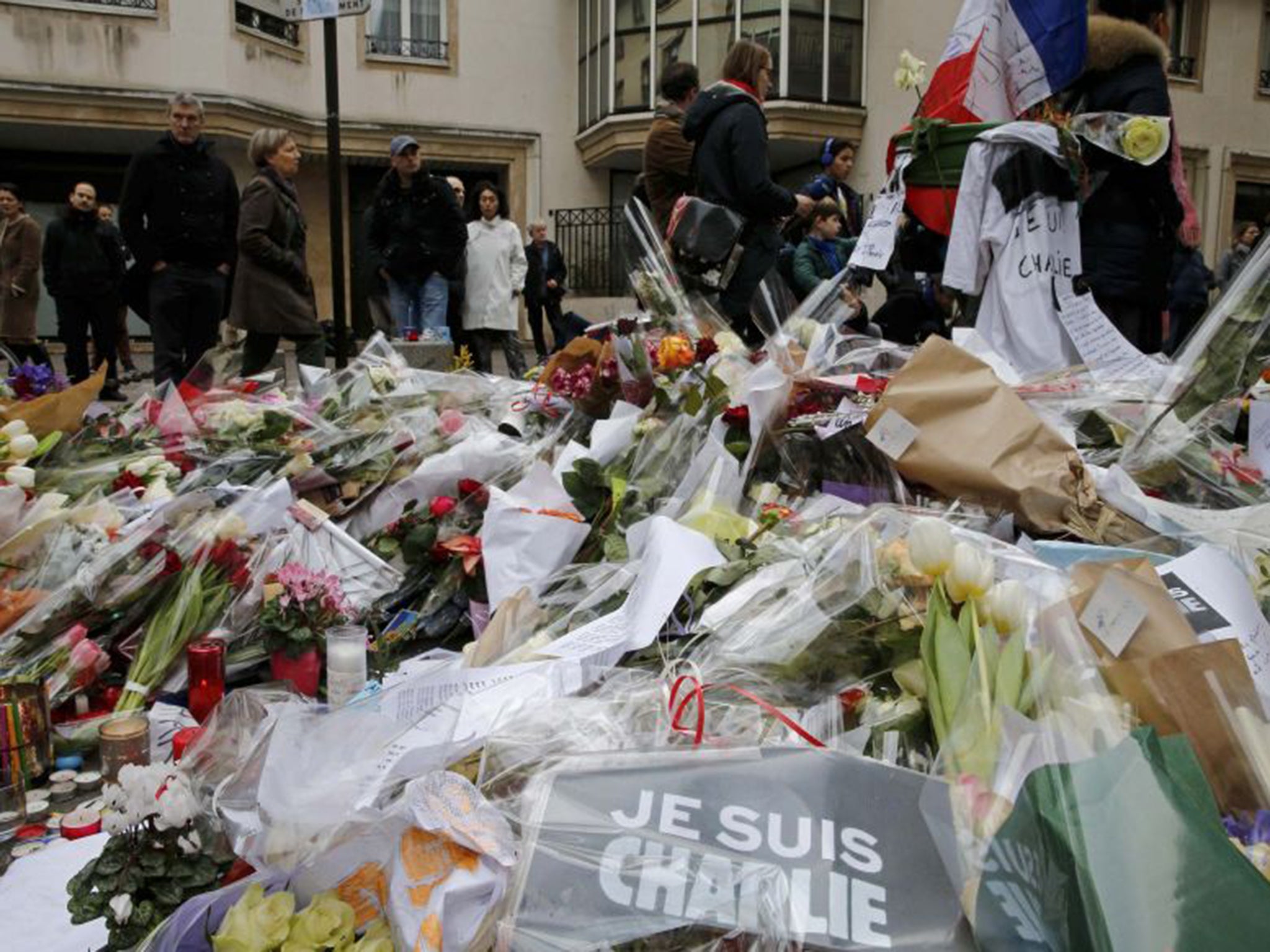
They got what they wanted. From the moment the Kouachi brothers climbed out of their black Citroën in a quiet street in Paris on Wednesday morning it was inevitable that they would die.
Everything they did and said in the following 48 hours suggested they wanted to be martyrs. Not for Islam, whatever they claimed, but for a corruption of that faith, a cult that takes the name of Allah but worships death and power.
"I was ready to die in battle," said Chérif Kouachi as long ago as 2007, but that sounds noble and this was not. Instead he put on military clothing and a balaclava, loaded a pair of Kalashnikovs and walked with his brother towards the office of a satirical magazine called Charlie Hebdo, in the middle of a chilly morning in Paris.
Armed police with their faces covered are not unusual on the streets of Paris, where tensions run high, so the maintenance men who saw them coming may not have been afraid. They walked like soldiers and asked in faultless French: "Is this Charlie Hebdo?"
There are no signs to announce the office, not since it was firebombed after the magazine published a cartoon mocking the Prophet Mohamed on its front page in 2011.
"No," said one of the men, "Charlie Hebdo is a few doors down." He was shot at point blank rage. The noise echoed around the street, changing everything. Frédéric Boisseau, a father of two, died at the age of 42. The first victim of the worst terrorist attack in modern French history.
Corinne Rey could have been the next, as she arrived at the office with the young daughter she had just picked up from kindergarten, but instead, the gunmen terrified her into tapping in the security code to let them enter.
Mother and daughter were ignored as the men marched into the offices, shooting the police officer who had been assigned to guard the editor. Brigadier Franck Brinsolaro was 49 years old.
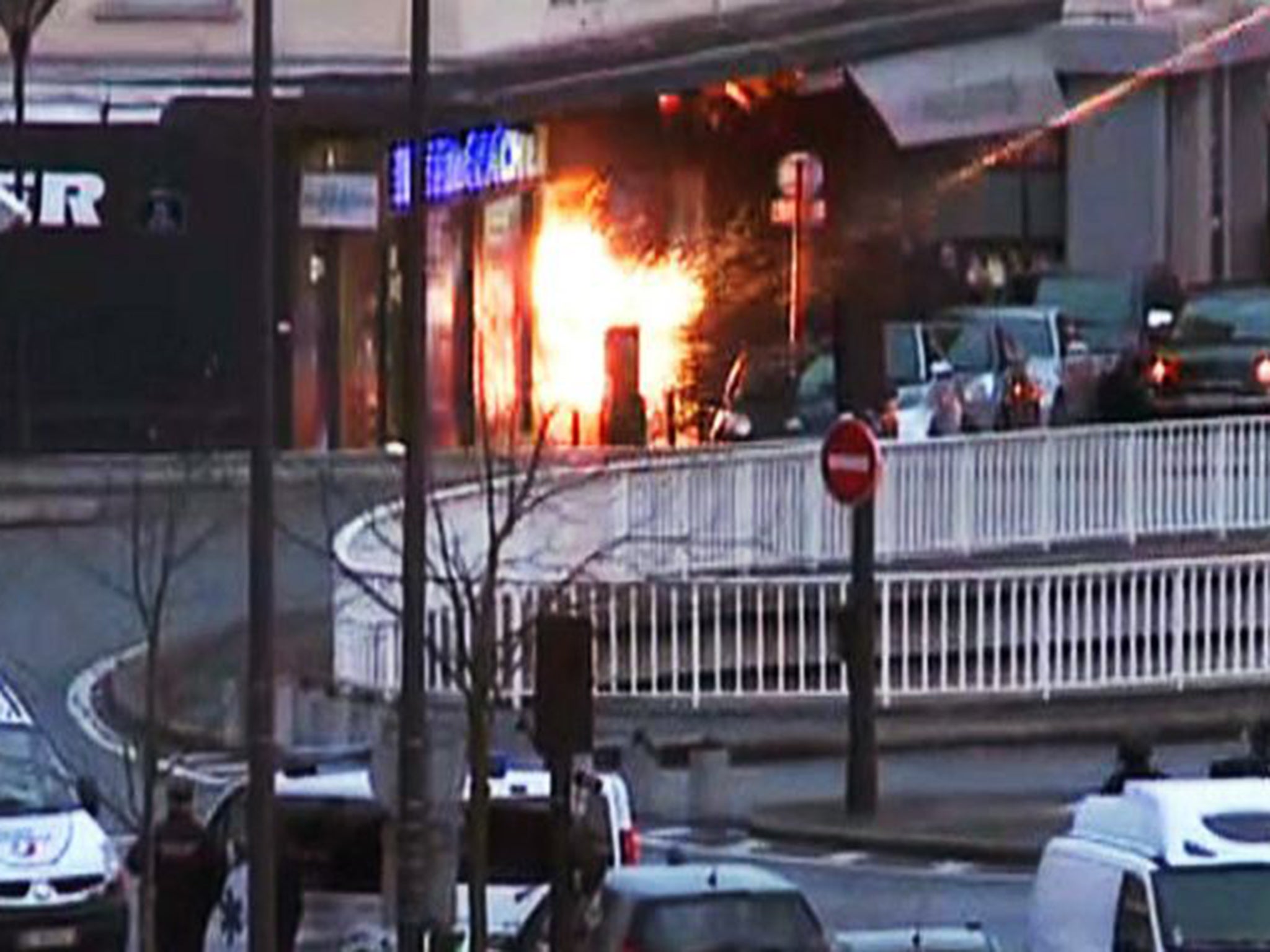
The killers knew who they wanted and shouted out names, but their first target was Stéphane Charbonnier, the editor. "Where is Charb?" They shouted it twice.
The 47-year-old had said in the past that he would rather die at the hands of offended Islamists than live like a rat. "I am not afraid of retaliation. I have no children, no wife, no car, no credit. It perhaps sounds a bit pompous, but I'd rather die standing than live on my knees." He was killed with his staff on press day.
Charlie Hebdo did not have many readers and was not to everybody's taste. The cartoons were vulgar and often unfunny. They attacked everyone from politicians to the Pope.
If Charlie Hebdo was anti-Islamic then it was also anti-Christian and anti-Jewish. The point of mocking the Prophet was to make Islam ordinary, just like all the other religions that Charb and his team saw as contrary to personal freedom, the cornerstone of the Republic.
Some French people viewed the magazine as a vital voice on the left, others as a bit of a laugh, an irritant or an irrelevance. After this massacre they would unite in realising what it meant to them, symbolically.
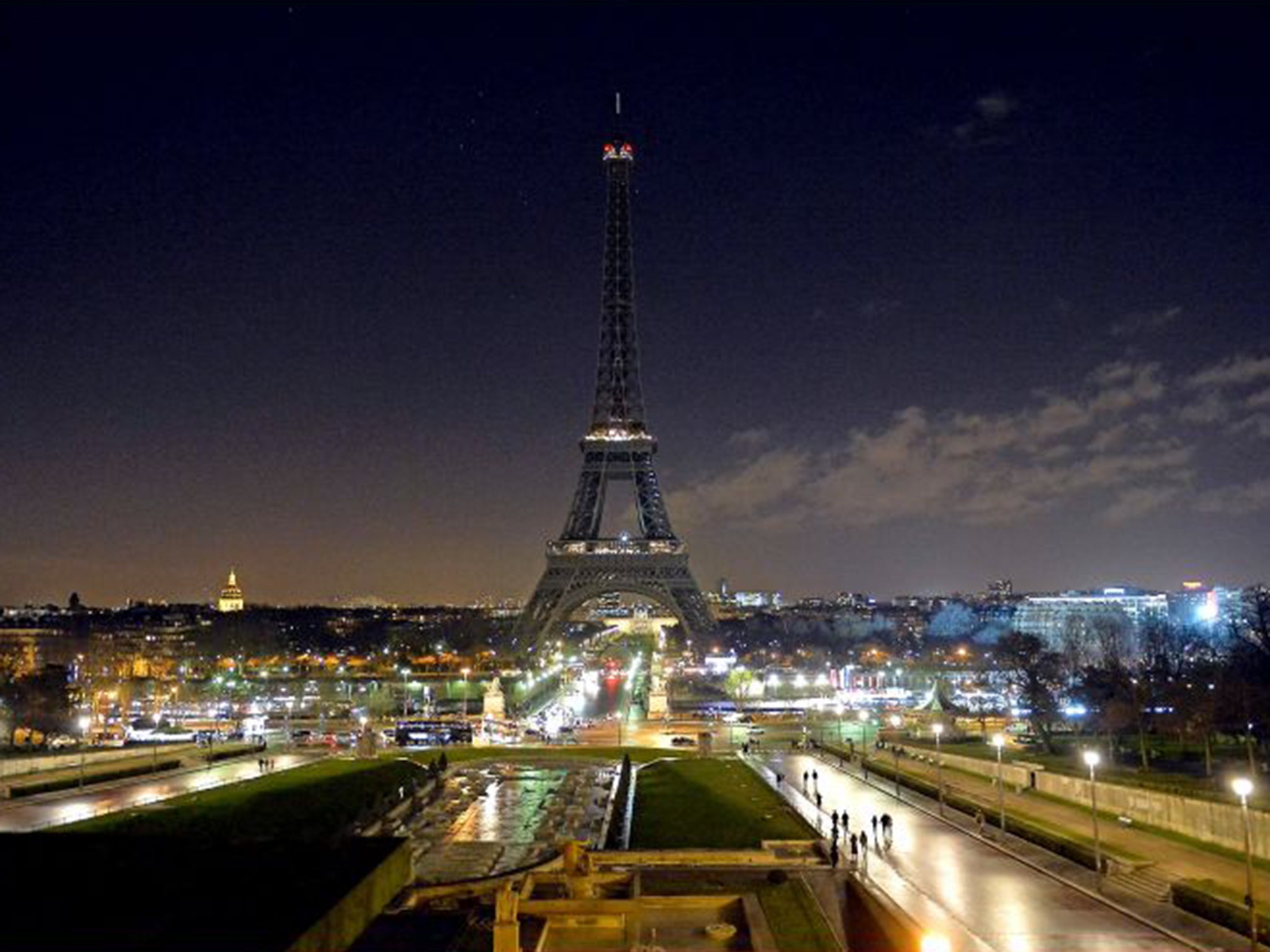
The last cartoon published in the name of Charlie Hebdo was a Twitter mockery of the leader of Islamic State, which appeared to foresee the attack. Whether it was posted before or after the shooting is unclear.
The drawing was credited to Philippe Honoré, 73, a gentle giant who died as the gunmen sprayed the room with bullets. Jean Cabut, 76, who signed his work Cabu and his fellow cartoonist Georges Wolinski, 80, were both killed.
They had been working for Charlie Hebdo since it was founded in the Sixties under a different name (Charlie is after the Peanuts cartoon character Charlie Brown and hebdo is a shortened form of the word for weekly). One of their daughters would later post a photograph of his empty desk online with the words: "Papa est parti pas Wolinski." Daddy is gone, not Wolinski.
The cartoonist Bernard "Tignous" Verlhac, 57, was killed along with the economist Bernard Maris, 68, known to readers as Uncle Bernard. The Algerian-born proof-reader Mustapha Ourrad, who had just become a French national, died along with psychoanalyst and columnist Elsa Cayat, 54, the only female victim.
Michel Renaud, who ran an arts festival and was visiting for the day, also died. The writer Laurent Leger called a friend in the aftermath, saying: "It's carnage, a bloodbath. Everyone is dead."
The gunmen left shouting that they had avenged the Prophet and killed Charlie Hebdo. They fired at a policeman on a bicycle then one of them jogged over and finished him off with a shot to the head as he lay pleading for his life. He was Ahmed Merabet, 42. He was a Muslim.
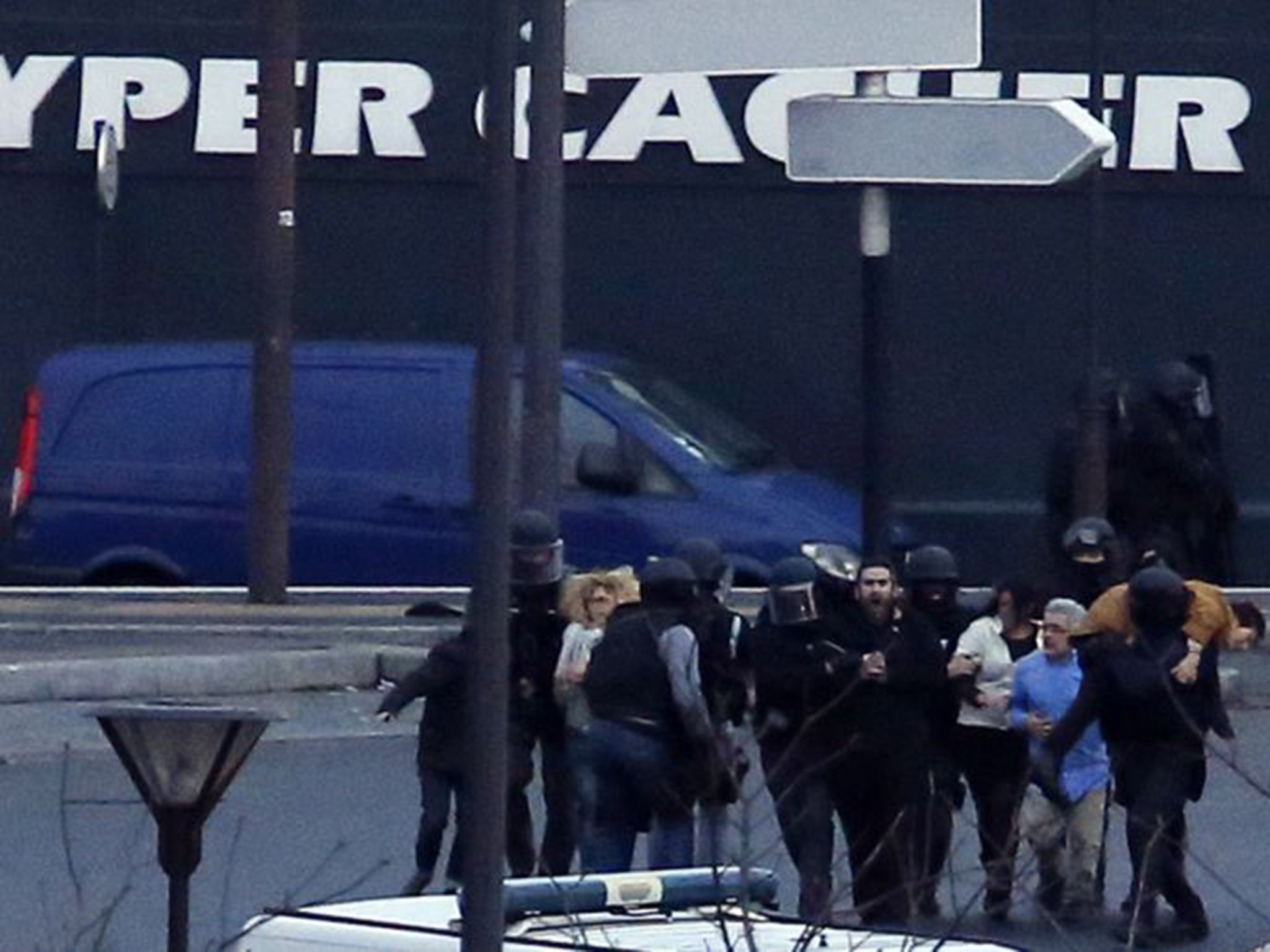
"God is great," they shouted as they got back into their Citroën. After three miles speeding through Paris, they crashed the car and left it behind, along with jihadi flags, petrol bombs and an identity card. They stole a grey Renault Clio, but let the owner retrieve his dog first, saying: "You can tell the media we're from al-Qaeda in Yemen."
Said and Chérif Kouachi were born in France to Algerian parents but raised as orphans. They had attended military-style training camps in Yemen and Chérif served half a three-year jail sentence for helping to send French jihadi fighters to the war in Iraq. They were not aliens but Frenchmen, and that panicked many in France who heard the news. As night fell, Paris was in shock. Pencils were held in the air as a sign of resistance among those who gathered for a vigil at the Place de la République, with candles spelling out "Charlie".
Similar rallies took place in London, Edinburgh and cities across Europe. Security was tightened at British ports, airports and media companies. Ian Hislop, the editor of Private Eye, the closest thing Britain has to Charlie Hebdo, said: "They paid a very high price for exercising their comic liberty. Very little seems funny today."
Muslim leaders in France and Britain condemned the attacks. Imams in Paris prepared to visit the magazine offices, saying: "Their hatred, their barbarism, has nothing to do with Islam."
They were outraged and frightened at seeing their faith hijacked by killers, as had happened with Christianity and even Communism in the past. Murderous people often seek cover and justification in faith.
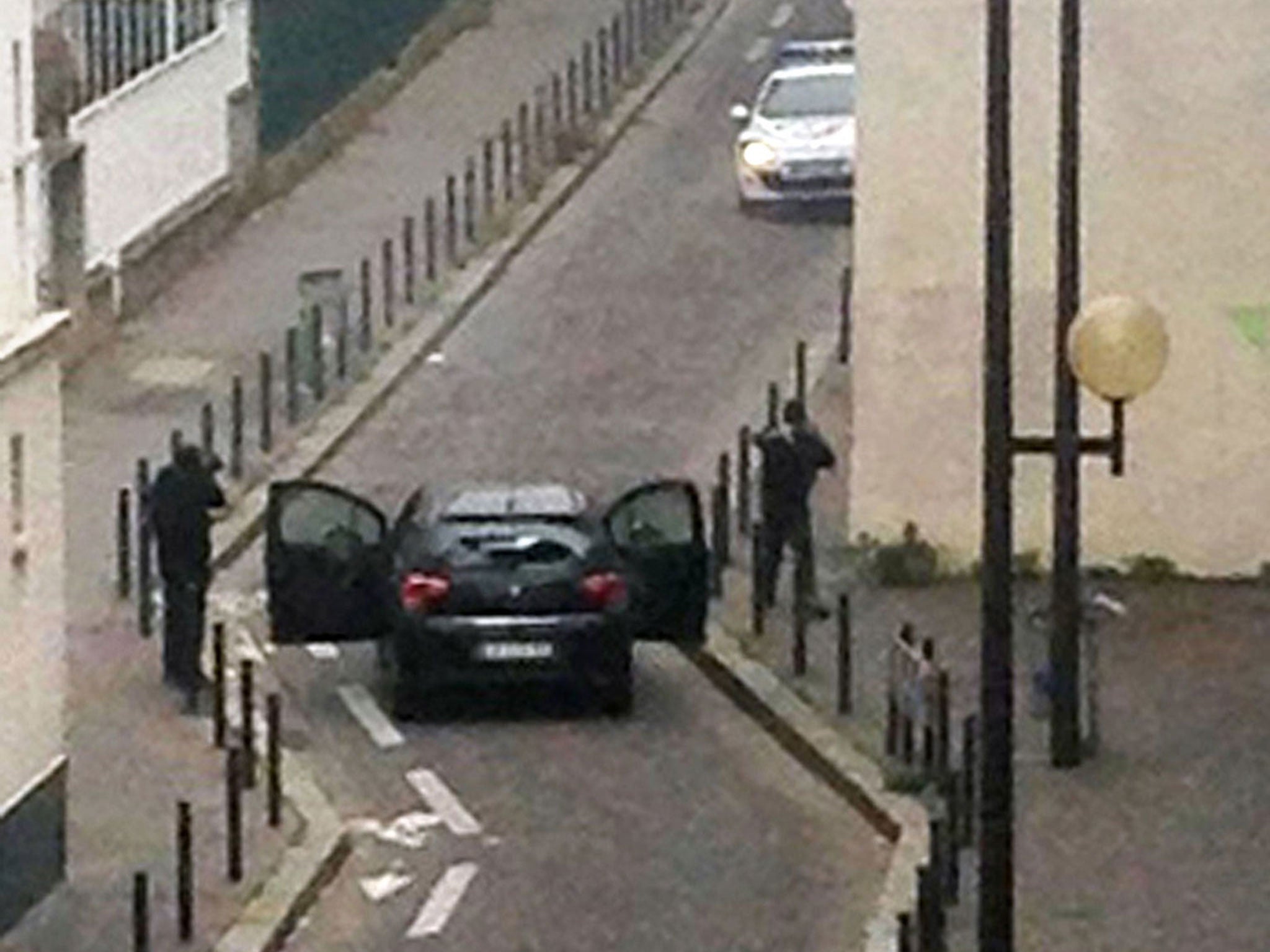
They are useful to extremist leaders on both sides, as attack dogs and bogeymen. The far right in France was quick to talk of a war (which this is) against French cultural identity (which it is not).
There were signs of a backlash on Wednesday night, with shootings at a prayer room, dummy grenades at one mosque and an explosion at a kebab shop next to another, but nobody was hurt. Not until Thursday morning, when a national day of mourning began with the shooting of another police officer.
Clarissa Jean-Philippe, 27, had only been in the force a matter of weeks. She was unarmed and directing traffic when a man in black body armour with a Kalashnikov gunned her down in south Paris. The police did not admit the shootings were linked, at first.
A minute's silence was observed across Europe at noon, as news came in that the two original gunmen had robbed a petrol station on the Route Nationale 2 north of Paris. They later abandoned their car and were believed to be hiding in the Forêt de Retz, where a resident said: "These woods are huge. You could easily hide out here for weeks, and there are lots of caves."
The lights of the Eiffel Tower were extinguished as night fell, leaving an ominous black shape against the night sky. There was a gunman at liberty in the city and the police had lost track of the brothers.
They resurfaced just after 8am on Friday morning by stealing a grey Peugeot from a woman in Montagny-Sainte-Félicité and speeding down the RN2. The police followed, ploughing through the filthy fog and rain in a desperate convoy. Then a road block forced the brothers to turn off towards Dammartin-en-Goële, the sort of sleepy place where people are glad not to live in Paris.
The Kouachis holed up in a print works on an industrial estate on the edge of town. Now there was a siege, with special forces surrounding the building, helicopters in wait and even a tank.
François Hollande had become known as a weak president, but now his forces were putting on an immense show of military and police strength. It might have been better for France to bring the men to justice like normal citizens, but this display of machismo meant that was no longer an option.
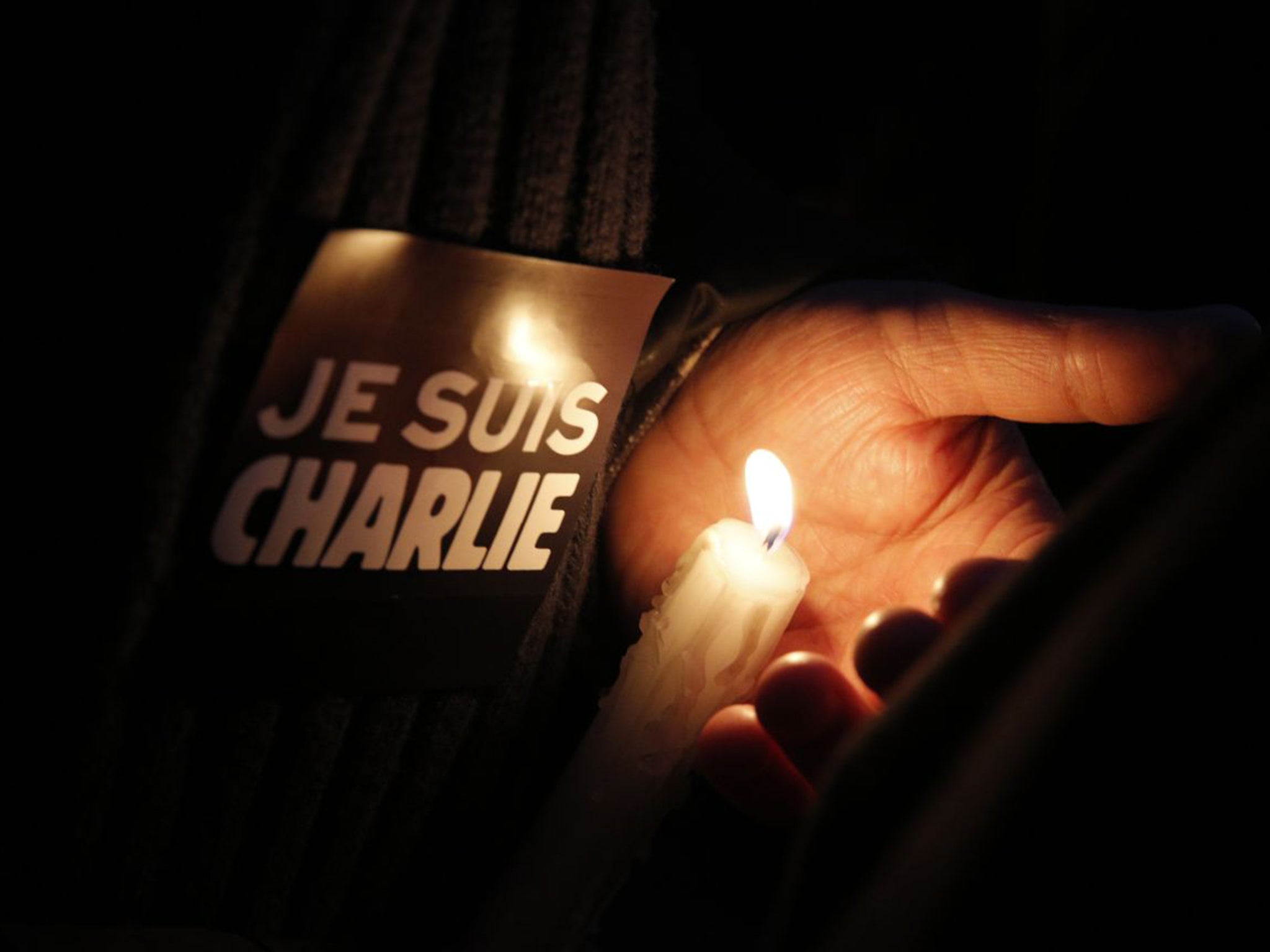
Shots and explosions were heard in Paris as the gunman from the day before strode into a kosher supermarket near Port des Vincennes and killed several people, taking many more men, women and children hostage. He would not let them go unless the Kouachi brothers were allowed to escape, and told police: "You know who I am."
Amedy Coulibaly had been born in France 32 years ago, to parents from Senegal. He knew the brothers and had been in phone contact with them through his partner and alleged accomplice Hayat Boumeddiene, 26, who was also named by police as armed and dangerous and who would remain at large.
Now there were two sieges. The light was fading. The police had to act and the decisive attacks came just after 5pm, as special forces threw in stun grenades at the print works and the brothers came out shooting. They died in a hail of bullets.
"We are ready to die as martyrs," they had told a broadcaster. It was not the spectacular public setting they might have wanted, but they had sacrificed their lives for the honour of the Prophet, provoked hatred and violence, and turned French citizens against each other.
Amedy Coulibaly had intensified the national crisis by targeting Jews and he went down fighting too. The supermarket siege left four dead and four wounded.
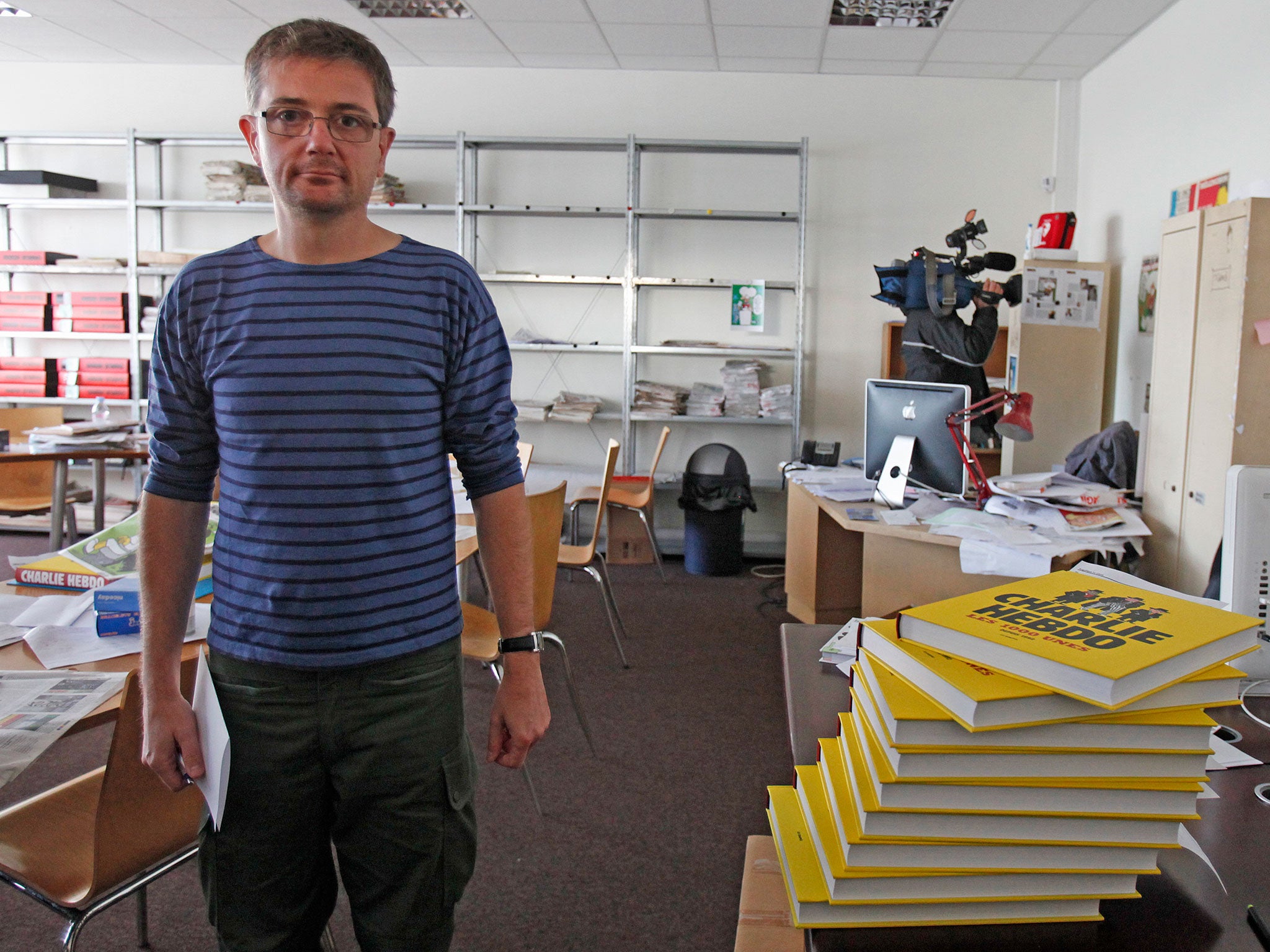
"We have to be vigilant. I also ask you to be united, it's our best weapon," said President Hollande on Friday night.
"This is our 9/11," said Karim Amellal of the Paris Institute of Political Studies. "It is not only a crime against free speech, it is a crime against Islam. It says in the Koran that the one who kills the man kills the whole of humanity."
Muslims in France should not have to apologise for the actions of people they also find appalling and terrifying, he said: "We don't have to condemn, justify and apologise because we are part of the republic and we want to be treated like citizens and not like separate people. We are shocked, like everyone else."
Charlie Hebdo will be published on Wednesday with a defiant print run of a million, but this is not really about cartoons or freedom of speech. Nor is it about religion, which is used as an excuse by one side in a long global struggle (while the other uses words like freedom and democracy which are just as empty when enforced at gunpoint). Power is the real prize. Control. Dominance through government or fear. Or both.
The emergence of small groups of men with military training, who are so hard to spot or stop before they come marching through peaceful streets killing people is just the latest vicious chapter in a story that began long before Wednesday morning, long before London or Madrid was bombed, even long before the felling of the twin towers. France will hold a rally of national unity today, with the far right not invited. It is the first step to denying the brothers what they would have wanted, which is holy war. But whatever France does next, the end of this story is nowhere in sight.
Join our commenting forum
Join thought-provoking conversations, follow other Independent readers and see their replies
Comments
Bookmark popover
Removed from bookmarks